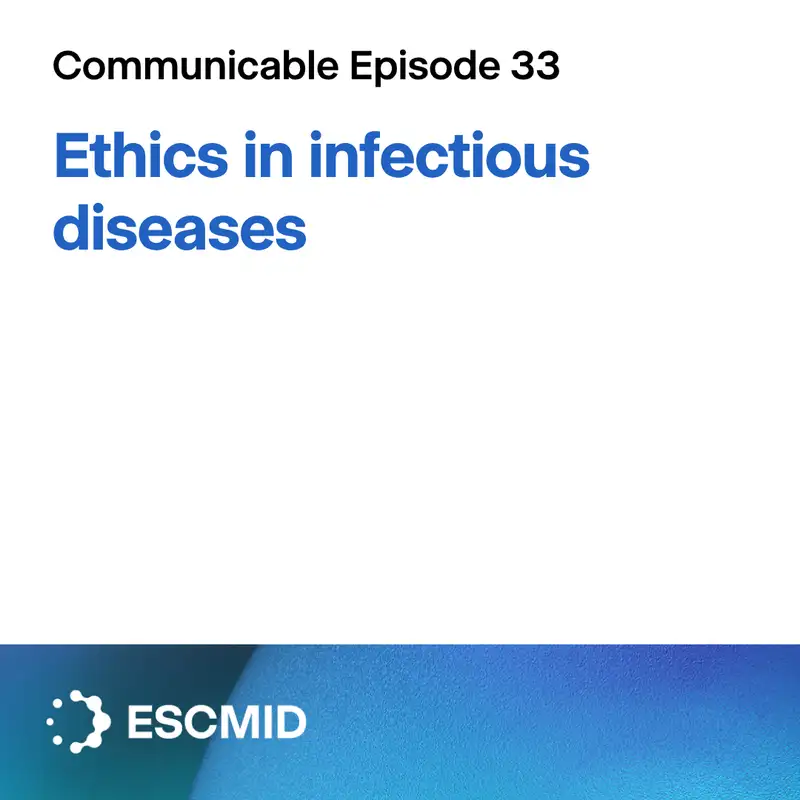Ethics in the field of infectious disease can be a delicate interplay between treating the individual patient and protecting the collective health of a society. Sometimes these two mandates go hand in hand; at other times they can appear to be in conflict. In this episode of Communicable, Dr. Angela Huttner invites Drs. Zeb Jamrozik (Melbourne, Australia) and Beenish Syed (Karachi, Pakistan), two members of ESCMID’s Ethics Advisory Committee, to unpack different scenarios encountered in the field of infectious disease from an ethics standpoint: how one ethically allocates scarce resources like antimicrobials; whether there is ethical justification for coercive public-health measures like lockdowns; and whether the need to collect evidence to advance patient care could include other models besides opt-in informed consent.
This episode was edited by Dr. Kathryn Hostettler and peer reviewed by Dr. Goulia Ohan of Yerevan State Medical University, Yerevan, Armenia.
Further reading:
- Barosa M, et al. The Ethical Obligation for Research During Public Health Emergencies: Insights From the COVID-19 Pandemic. Med Health Care Philos 2024. DOI: 10.1007/s11019-023-10184-6
- Symons X, et al. Why should HCWs receive priority access to vaccines in a pandemic? BMC Med Ethics 2021. DOI: 10.1186/s12910-021-00650-2
- Thorsteinsdottir B and Madsen BE. Prioritizing health care workers and first responders for access to the COVID19 vaccine is not unethical, but both fair and effective – an ethical analysis. Scandinavian Journal of Trauma, Resuscitation and Emergency Medicine 2021. DOI: 10.1186/s13049-021-00886-2
- Huttner A, Leibovici L, Theuretzbacher U, Huttner B, Paul M. Closing the evidence gap in infectious disease: point-of-care randomization and informed consent. Clin Microbiol Infect 2017;23(2):73-77. DOI: 10.1016/j.cmi.2016.07.029
 S2E33
S2E33